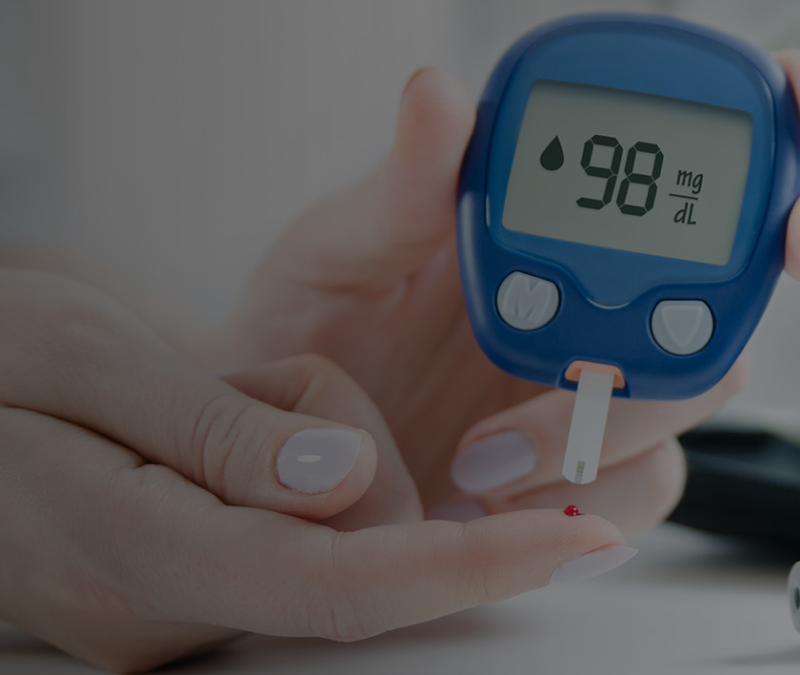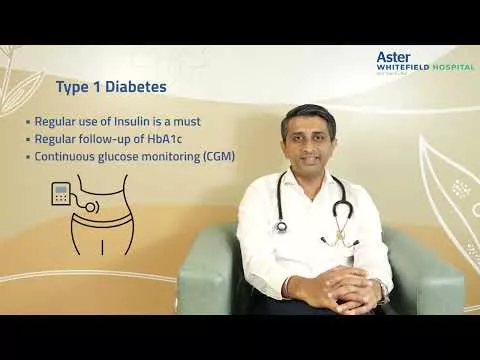Endocrinology and Diabetology are specialized fields of medicine that focus on the diagnosis, treatment, and management of hormonal and metabolic disorders. These disciplines play a crucial role in addressing the complex health issues related to hormone imbalances, diabetes, and other endocrine disorders. Aster Whitefield Hospital's specialized Centre of Endocrinology provides advanced treatment facilities. The department comprises a skilled and proficient team of seasoned endocrinologists, endocrine surgeons, diabetologists, and other allied physicians who deliver optimal care for a broad spectrum of conditions. These include thyroid disorders, adrenal disorders, pituitary diseases, and diverse forms of diabetes. The department employs a multidisciplinary approach to patient care. They collaborate with nutritionists, educators, and other specialists to provide comprehensive treatment plans that address not only medical aspects but also dietary and lifestyle modifications.
At Aster Whitefield Hospital, you'll find comprehensive facilities, including outpatient and inpatient wings, a dedicated day-care unit, and specialized ICUs. We provide continuous glucose monitoring and ambulatory blood pressure monitoring services. Our hospital embraces a modern approach, utilizing cutting-edge imaging equipment and techniques for both traditional and minimally invasive surgeries to treat various endocrine tumors. Moreover, Aster Whitefield Hospital emergency department is fully equipped to handle all types of endocrine emergencies.
Aster Whitefield Hospital ensures that specialized departments are staffed with highly efficient doctors and offer comprehensive services, allowing for holistic care that empowers patients to embrace healthier lives.
Services offered:
We offer inclusive treatment for a wide range of diseases, all conveniently provided in a single location. Our team is supported by specially trained clinical staff, guaranteeing that you receive the highest level of care possible.
Treatment for Endocrine: Comprehensive care for hormonal disorders which include,
- Diabetes and hypoglycemia (High and Low Sugar in the blood).
- Diabetic foot care.
- Thyroid disorders.
- Obesity.
- Parathyroid disorders.
- Young/Secondary hypertension.
- Metabolic Bone Disease, Osteoporosis.
- Adrenal Disorder.
- Pituitary disorders.
- Electrolyte disturbance.
- HRT & other hormonal disorders.
Diabetes mellitus: Chronic metabolic disorder characterized by high blood sugar levels
Thyroid clinic: Specialized clinic for the diagnosis and management of thyroid disorders. Generally, these issues arise when the thyroid gland fails to produce the optimal amount of hormones necessary for the body to function properly. By providing specialized consultations, conducting appropriate examinations, and prescribing necessary medications, the clinic assists individuals with thyroid problems in effectively managing their condition. The clinic's services encompass the medical and surgical management of all thyroid disorders.
Open parathyroidectomy: Surgical procedure to remove abnormal parathyroid glands. Open Parathyroidectomy is the traditional treatment of choice in symptomatic primary hyperparathyroidism. Parathyroidectomy cures fatigue and the bone, abdominal, urological, and mental symptoms associated with hypercalcemia.
Polycystic ovaries: Condition characterized by multiple cysts on the ovaries, often associated with hormonal imbalances.
Osteoporosis: A bone disease characterized by decreased bone density and increased risk of fractures. Obesity: Excessive accumulation of body fat, often associated with various health complications
Hypertension: High blood pressure, a common condition that can lead to various cardiovascular problems and it contributes to 45-50% of deaths due to heart disease and stroke. 15 – 20 % of hypertensive patients have secondary causes like Renal and Endocrine disorders.
Laparoscopic surgery: Minimally invasive surgical technique using small incisions and a camera for visual guidance
Open adrenalectomy: Surgical removal of the adrenal gland through an open approach
Minimally invasive parathyroidectomy: Minimally invasive parathyroidectomy (MIP) refers to a surgical approach that is focused on identifying and removing a single enlarged parathyroid gland before the operation. This technique, known as focused or targeted parathyroidectomy, may also provide an opportunity to examine the gland on the same side (ipsilateral) under certain circumstances.
Endocrine tumors: Abnormal growths in the endocrine glands includes the thyroid, parathyroid, adrenal glands, pancreas, intestines, and pituitary glands that can affect hormone production
Thyroid nodule excision: Surgical removal of abnormal growths or nodules in the thyroid gland. In cases where a thyroid nodule suspected of being cancerous is present, a lobectomy is utilized as a surgical procedure to remove it. Removing a single lobe instead of both lobes often enables the remaining portion of the thyroid gland to maintain sufficient production of thyroid hormone.
Growth disorder: Condition characterized by abnormal growth patterns in children or adults.
Pheochromocytoma: Rare tumor of the adrenal gland that can cause excessive production of epinephrine and norepinephrine, hormones that control heart rate, metabolism, and blood pressure.
Advanced Technology & Facilities
Well equipped with the latest medical equipment, modern technology & infrastructure, Aster Hospital is one of the best hospitals in India.
Aster Hospital stands out as one of India's top-notch medical facilities, boasting cutting-edge medical equipment, state-of-the-art technology, and advanced infrastructure.
Investigations for Endocrinology & Diabetology
- Hormonal assays
- Ultrasound
- ACTH stimulation test
- Thyroid scan
- All hormonal stimulation & inhibitory dynamic tests
- Diabetic Retinal screening and management
- Diabetic foot tests
- CT/MRI tests
- Dexa scan
Blogs
The source of trustworthy health and medical information. Through this section, we provide research-based health information, and all that is happening in Aster Hospital.







